-
Protect the National Flag of Tonga from Unauthorized Commercial UseThe Flag of the Kingdom of Tonga is a sacred emblem of our nation’s identity, sovereignty, and unity. It embodies the sacrifices of our ancestors, the pride of our people, and the values enshrined in our Constitution. While the Constitution and the Tonga Royal Arms and Flag Act (1962) protect the flag from alteration, there is currently no law preventing its use on commercial products without the consent of the Government of Tonga. As a result, the flag has been used by private companies, often overseas, for profit, without respect for cultural significance and without benefit to the people of Tonga. Our Concerns • Cultural integrity: The flag is being printed on merchandise that contradicts cultural beliefs and values such as footwear, some apparel, and novelty items, diminishing its dignity. • Economic loss: Profits from these items often flow offshore, with no return to Tonga’s economy or people. • Lack of legal recourse: Current laws do not cover the commercial exploitation of the national flag. We call on the Government of Tonga to: 1. Amend the Copyright Act 2002 to include explicit protection for the national flag, prohibiting its use for commercial purposes without prior government consent. 2. Amend the Tonga Royal Arms and Flag Act (1962) to extend similar protections to the national flag as are afforded to the Royal Ensign and Coat of Arms. 3. Establish a licensing and approval process for any commercial use of the flag, ensuring such use aligns with cultural values and national interests. 4. Introduce enforcement mechanisms and appropriate penalties for unauthorized commercial use, both domestically and internationally, where possible. 5. Launch a public awareness campaign to educate businesses and the public about the proper and respectful use of the national flag. International Precedents Other nations have successfully implemented legal protections for their flags and culturally significant symbols, including: • Australia: Copyright protection and licensing for the Aboriginal flag. • Canada: Prohibits commercial use of the national flag without consent. • South Africa: Trademark protection of the flag’s design. WIPO (SA), Gov.Za, fiav.org Tonga can adopt a similar approach to safeguard our national symbol. The Tongan flag is a national symbol of indigeneity and sovereignty of identity. This is not a logo for sale; it is a living symbol of our heritage, sovereignty, and shared future. We, the undersigned, urge the Government of Tonga to act decisively to protect it for generations to come.86 of 100 SignaturesCreated by Tapa Talanoa
-
Kāinga Ora: Don't roll back on Rangitata homesNo matter who we are, or where we come from, people across Aotearoa deserve somewhere safe and dignified to call home. As house prices sky rocket, Aotearoa is plunged deeper into the housing crisis created by this Government, Kāinga Ora have rolled back their commitment to deliver social housing in Rangitata.[1] These homes are desperately needed for our most vulnerable citizens - more and more of whom are forced into rough sleeping as they're priced out of the private rental market and emergency housing options are stripped away. Our construction sector also needs the work it will bring in; over the past year we've lost close to a thousand local jobs with the closing of Alliance Smithfield and the loss of the Antarctica contract as examples, and the recession making times rougher across the board for everyone. We’re calling on you as our representative to ensure Kāinga Ora stays true to their commitment to the Grey Road/Arthur Street development, and to show up for your constituents when it matters not just at campaign time. References: [1] Kāinga Ora cans hundreds of social housing building projects after review, takes up to $180m hit - NZ Herald28 of 100 SignaturesCreated by Jacqui Giles
-
Keep Tokoroa Toi Ohomai OPENNo matter where we live in Aotearoa our communities need access to essential services, education and opportunities to grow and thrive. That includes Tokoroa and other small regional communities throughout the South Waikato. But as a result of this Government’s decisions Tokoroa’s Toi Ohomai campus is facing closure. The Toi Ohomai Institute of Technology has published a proposal to cut over 160 jobs which would lead to the purpose built campus in Tokoroa being closed. Toi Ohomai has said the proposal was in response to a Government expectation to become “financially viable”. Tokoroa has already faced the devastating blow of Kinleith Mill shutting down one of its plants with 150 people losing their jobs. Families have had to reevaluate their lives in the South Waikato, with many deciding to move out of the district for more job opportunities. Some have decided to stay, looking into retraining at Toi Ohomai or seeking employment in other areas in the district. The Toi Ohomai campus in Tokoroa is a beacon of light for those who otherwise wouldn't have the means to travel to continue tertiary education in Rotorua, Tauranga or Hamilton. The campus and its courses are an asset to all ages, from young high school graduates to adult learners looking to upskill or retrain. With new housing developments and the Maraetai Road Business Park build, there is a light at the end of the economic recovery tunnel for Tokoroa and the wider South Waikato. If Toi Ohomai remains open in Tokoroa, it has the potential to become a significant economic catalyst for local businesses and the recruitment and retention of young people in the district. If we lose Toi Ohomai in Tokoroa, opportunities for locals will once again become extremely limited and the wider community will be left with the burden to fill the gaps. To creatively and collaboratively invest in our local community and allow time for possibilities to flourish is to contribute to the growth and vibrancy of the South Waikato and provide hope to future generations. "Patience is bitter, but its fruit is sweet". Sign this petition to signal to Toi Ohomai and the government that the Tokoroa community deserves better and will not stand by as our opportunities for youth and future generations are shortsightedly taken away. Let’s show Toi Ohomai leadership that the Tokoroa campus is a valued asset in the community and it must stay open.246 of 300 SignaturesCreated by Elvisa Van Der Leden
-
Justice and Dignity for Abandoned Newborns in AotearoaBecause no baby should be discarded and forgotten. Because every pēpi deserves to be honoured. Because silence is not respect — it’s erasure. When a baby like Anahera (Onehunga, 2021) or the Freeman’s Bay newborn (2024) is found alone and abandoned, they deserve more than just a coroner’s report. They deserve love, karakia, and the dignity of being remembered. These cases are extremely distressing and complex, as such they require nuanced approaches. This isn’t just about grief — it’s about how we treat the most vulnerable in our country. It’s about our values as a community, as tangata whenua, as whānau. As a mother, compassion and empathy must be intertwined with care. The more supportive pathways we can extend to the people who are suffering, the greater a chance we have of protecting the safety and wellbeing of children. was found. This petition is my karanga — a call for dignity, justice, and aroha.15 of 100 SignaturesCreated by Julzz Kearns

-
PM Luxon: Uphold Codes of Conduct - Call David Seymour into lineResponsible leaders welcome advice from experts when they are creating laws and policies. They know good decision making means planning for the long term, considering diverse points of view and making evidence based decisions. This is also key to a healthy democracy. Which is why Deputy Prime Minister David Seymour’s targeting and harassment of people in academics and officials is so concerning. The Prime Minister has the responsibility to ensure the conduct of Ministers of the Cabinet is fitting of their office and inline with the Cabinet Manual. The Deputy Prime Minister’s deliberate targeting of academics and the exposure of Christchurch Council staff to ridicule by comparing them to Russian President Vladimir Putin, following their opinions on the Regulatory Standards Bill, appears to be a direct breach of the Cabinet Manual’s standards of conduct. It’s a blatant attempt to stifle academic freedom and any dissenting opinion. For the Deputy Prime Minister David Seymour to lead this online harassment campaign is concerning, as such actions could incite behaviour that spills into real-world violence. This is irresponsible and a clear breach of public trust. We expect our leaders to keep us safe, not throw us into harm’s way. Such behaviour by the Deputy Prime Minister compromises the safety and wellbeing of the targeted individuals and sets a dangerous precedent for how dissenting voices in our society are treated. It also breaches sections 2.53 and 2.56 of the Cabinet Manual. As Prime Minister and Head of the Cabinet, we urge you to immediately investigate this matter and address this serious breach of the Cabinet Manual. We expect our officials to display the highest standards of conduct and ensure that all members of our community can contribute to public debate without fear of harassment or intimidation. An official letter to this effect has already been sent to Luxon - sign this petition if you want to add your power behind the call!30,219 of 35,000 Signatures
-
Restore The Southerner TrainA restored Southerner train route offers affordable transport for 750,000 SI residents, bridging gaps where air is too costly for students/low-income, coaches inaccessible for disabled/elderly, and car travel unsafe/expensive. This boosts regional economic development and tourism. Recent rail investments, like Hillside Workshops, new ferries, and Inland Ports, confirm rail's viability in the South Island.6,405 of 7,000 SignaturesCreated by Patrick Rooney

-
Support the Unlawful Occupation of Palestine Sanctions BillWhy the Bill Matters The Bill proposes targeted sanctions against individuals and entities complicit in maintaining Israel’s unlawful presence in the OPT. These sanctions would restrict the movement of assets, services, and individuals between New Zealand and those contributing to violations of international law. The Bill builds on New Zealand’s existing sanctions framework—used in response to Russia’sinvasion of Ukraine—and is a credible, principled method for: • Upholding the rights of Palestinians, Israelis, and others affected by the occupation and apartheid policies. • Translating New Zealand’s verbal commitments at the United Nations into tangible legislative action. • Reinforcing the integrity of the rules-based international order and our obligations under international law. Call to Action This is a member’s bill. Under Standing Order 288, it may be introduced directly if 61 or more non-executive MPs express their support. Given the escalating humanitarian crisis in Gaza, we believe the urgency of this situation justifies bypassing the standard ballot process. We respectfully ask you to: 1. Publicly support the introduction of this Bill, allowing Parliament to consider this critical issue in a timely and principled manner. 2. Advocate within your caucus for party support, and encourage fellow members to join the 55 MPs who already support the Bill, so we may reach the 61-MP threshold. 3. Commit to voting in favour at all stages of the Bill’s progression, demonstrating that New Zealand will not tolerate violations of international law. A Matter of Conscience Standing up for the fundamental rights of Palestinians—including children, families, and the elderly—is a moral imperative. History will remember those who chose to act in the face of injustice. We, the undersigned, urge you to stand with us and support this Bill. It is a vital opportunity for New Zealand to show leadership, uphold international law, and affirm the values we claim to represent on the world stage. Ngā mihi nui, Your constituents652 of 800 SignaturesCreated by Katrin Millener
-
Oneone ki te WhenuaOn the 5th of May 2025, Ngati Oneone activated 'Oneone ki te whenua' 185 years to the day that our tipuna Rawiri Te Eke Tu signed 'ae ra' on Te Tiriti o Waitangi. 80 years later, the whenua of his hapu was taken piece by piece in the name of public works and harbour development. Within 10 years Ngati Oneone was displaced and homeless, a people without whenua. Today the Gisborne District Council, Trust Tairawhiti and Port Eastland are the owners of what remains of that whenua. Port Eastland has offered a small piece back with conditions. Those conditions continue to oppress our right as a hapu to exercise our Tino Rangatiratanga, offering land and in return silencing our voice regarding future port development, RMA applications and the risk of being fined if we were to ever oppose them. 100 years removed from our whenua, enough is enough! Ngati Oneone Hapu has lived, bred and died on our tribal lands from Pouawa in the North of Gisborne to Te Toka a Taiau, Turanganui awa, including the lands known as Kaiti/Kai Iti/Puhi Kai Iti. In 1852 our first Pa (on Hirini St) was built. In 1885 the Harbour Board was enabled to carry out major works under the Harbour Board Act, in the area: • The blowing up of Te Toka a Taiau • The blowing up of Puakaiwai/Punaariki/Tuaiti Is • The removal of Te Poho o Rawiri Pa and tribal housing Under the Public Works Act, significant lands were taken, here to name a few: • Titirangi Maunga (parcels of land sold to pakeha individuals and corporations) • Rakau a Ue Urupa (roadway created, urupa desecrated) • Turanganui awa - Rua Koura (continued degradation) • Ruatanuika maara/gardens (destroyed) • Te Umu a Tawhiwhi (destroyed) • Te Waiu o Hamoterangi (destroyed) • Te Pioi Pa (destroyed) • Puhi Kai Iti - reefs (destroyed) • Roadway put through Rakau a Ue Urupa The raupatu of our lands has alienated Ngati Oneone occupation and cultivation in these areas, destroyed puna wai, wahi tapu and urupa. Atrocities on Ngati Oneone hapu, whenua and wai are actions that have been applied and imposed on our hapu for the past 100 years. In all those years, Ngati Oneone have not been treated in Fairness, Dignity or Human Rights. This cannot be the responsibility of the fourth generation to seek redress!6,485 of 7,000 SignaturesCreated by Te Owaina Gibson
-
Protect Our Youth – Ban Vape Shops in the Far North DistrictNgā Take 10 Hei Hainatia i Tēnei Petihana TOP 10 REASONS TO SIGN THIS PETITION 1. Kua piki haere te haurehu a ngā rangatahi—me tū ngātahi tātou te aukati i tēnei mate urutā. Youth Vaping Epidemic - vaping is spreading fast among rangatahi (young people), and it's becoming a serious health issue. Daily vaping among New Zealand teens has nearly doubled in one year, with 25.2% of 18–24 year-olds now vaping daily. Among Māori youth, this rate is even higher at 21.7% [6]. 2. He mōrearea tūturu ki te hauora. The health risks are real — vaping isn’t as safe as purported. Vaping is linked to respiratory conditions, nicotine addiction, and impaired adolescent brain development. Emerging evidence also suggests a potential connection to chronic obstructive pulmonary disease (COPD) and cardiovascular risks (New Zealand Doctor, 2005). [7] 3. Ko ngā kamupene haurehu e pūpuri ana a tātou mokopuna i te mate. Vape advertising is targeting our kids [7] — and our kids are becoming addicted. It looks nice. It tastes nice. It's addictive. It makes you feel good. Flavoured vapes, bright packaging, and social media marketing are deliberately designed to attract young users. Some schools in Northland have reported finding children as young as 11 using vapes [8]. 4. Ka nui te utu ka utaina ki te ohanga ā tōna wā roa. Vaping might look cheap now, but the long-term costs to our health system and communities are massive. Treating vaping-related health conditions will place a growing strain on our healthcare system and taxpayers. Meanwhile, profits flow largely to multinational tobacco corporations. 5. He pānga kino tō te haurehu ki te taiao. Disposable vapes are polluting our whenua, waterways, and oceans — and they’re piling up fast [9]. 6. E whakakāhore ana ētahi atu kawanatanga o te ao hei ārai ēnei taputapu haurehu, me pēnei hoki tātou o Aotearoa . Around the world, governments are stepping up to protect young people from vaping. The Cook Islands has demonstrated bold leadership by banning the sale of vapes and raising the smoking age to 21 [10]. We can take bold measures, too. 7. Ka puta mai ngā toa hoko haurehu ki kō, ki kō, ki ngā wāhi pātata ki ngā kura, ki ngā hapori, ki ngā kainga maha. Hanga tōmuri kē ngā ture o te rohe. Vape shops are popping up everywhere — and the rules aren’t keeping up. As of mid-2023, there were over 1,200 specialist vape retailers registered in New Zealand [11]. Many operate through loopholes such as 'stores within stores,' making regulation difficult and we are now seeing global franchises such as “Shosha” stores penetrate our community. 8. Horekau he ture ā-rohe hei mimiti i ēnei āhuatanga raru ki te hāpori, ki a tātou mokopuna me ngā paru e panaia ki a Papatuānuku. Without local rules, vape shops are popping up everywhere — and our communities, our kids and the environment are at risk : The Far North District Council is currently the only Northland council without a smokefree/vapefree policy for public spaces. This leaves places like playgrounds and beaches unprotected. 9. Ka whakapau taima ngā kaiako te aru haere i ngā take haurehu i roto i ngā kura . Kāhore e pai te haurehu ki te hauora, ki te ako hoki. Vaping in schools isn’t just a health issue — it’s a disruption to education and the school environment. Teachers report vaping as a major disruption, taking time and resources away from learning. 10. Mā te reo kotahi o te hau kainga o Kaikohe o Kaitaia e tīni i ngā āhuatanga tūkino o ngā toa haurehu. Local voices can lead to real change. Let’s make sure our community is heard and protect our rangatahi from vaping. Local voice matters. Our communities should determine the types of businesses allowed to operate here, not corporate interests profiting from addiction. Me tupu pakari a tātou tamariki. Tuhia tō ingoa ki te petihana, āwhinatia mātou ki te tū mō tō rātou anamata. Our kids deserve to grow up safe and strong. Sign the petition and help us stand up for their future. References [1] https://www.phcc.org.nz/briefing/smoking-and-vaping-among-14-15-year-olds-government-action-urgently-needed [2]https://www.nzdoctor.co.nz/article/undoctored/vaping-causes-incurable-lung-disease-groundbreaking-study-shows [4] https://www.1news.co.nz/2024/04/10/unacceptably-high-sales-to-underage-vape-buyers-revealed/ [5] https://www.rch.org.au/kidsinfo/fact_sheets/E-cigarettes_and_teens/ [6] https://www.health.govt.nz/publications/smoking-status-of-daily-vapers-new-zealand-health-survey-201718-to-202122 [7] https://nzmj.org.nz/media/pages/journal/vol-137-no-1589/exposure-to-digital-vape-marketing-among-young-people-in-aotearoa-new-zealand/dc9761c255-1706653375/6317.pdf [8] https://www.nzherald.co.nz/northern-advocate/news/vaping-in-schools-being-stubbed-out-with-homegrown-northland-lessons/GWARQTN6UFAFRMIFTCFQQZDSBU/ [9] https://www.greenpeace.org.uk/news/are-disposable-vapes-bad-for-the-environment/ [10] https://www.rnz.co.nz/international/pacific-news/517488/cook-islands-bans-vapes-smoking-age-raised-to-21-if-you-don-t-smoke-you-still-die-opposition-mp-says [11] https://www.health.govt.nz/system/files/2024-08/RIS-visibility-of-vape-products-and-proximity-of-Specialist-Vape-Retailers-Redacted.pdf Further reading J, Erhabor., Z Yao., Erfan Tasdighi, Emelia J Benjamin, Aruni Bhatnagar, Michael J Blaha. 2005. E-cigarette Use and Incident Cardiometabolic Conditions in the All of Us Research Program, Nicotine & Tobacco Research, https://doi.org/10.1093/ntr/ntaf067335 of 400 SignaturesCreated by Te Wananga o Te Rangi Aniwaniwa
-
Properly staff and resource our HospitalsAotearoa should be a place where people who are in need can access hospitals and get timely treatment, where staff are supported and properly resourced to give quality care. We have the opportunity to ensure that the most medically vulnerable people in our communities are properly supported through their journeys to improved health and wellbeing. New Zealand is facing a health crisis. People are suffering, and some are dying, because they can't access the treatment they need. Our hospitals need to be rebuilt, better resourced and better staffed. New Zealanders deserve a healthcare system that doesn't leave them waiting for months or years just to get the treatment they need; and medical professionals deserve to work in an environment that enables them to deliver the care their patients need and deserve. “We have over a thousand patients that are waiting for either a first specialist appointment or a follow-up appointment. I've never seen that number of patients waiting to be seen." — Dr. Claudia Hays, head of the Obstetrics and Gynaecology Department at Nelson Marlborough Health [1] “Certainly I have seen patients that I believe their disease has gone from curable to incurable during that waiting time." — Dr Suzanne Beuker, senior doctor and consultant for the Urology Department at Nelson Marlborough Health [1] “Someone put my life at risk by changing my diagnosis. This could’ve damn near killed me.” — Daniel Walker, Nelson patient whose nine-week wait likely increased the spread of his testicular cancer [2] The Government needs to build facilities that are fit for purpose for our aging and growing population. Despite the growing crisis, there is a lack of action. We need a bipartisan approach to healthcare that resolves these issues once and for all. The public needs transparency, information and engagement regarding investigations and reports on these issues; and in particular the independent investigation at Nelson Hospital. Sign this petition and together we can hold the government to account and make sure our hospitals are resourced enough to help our family and friends in need.421 of 500 SignaturesCreated by daniel walker
-
Student Sports For All StudentsWe believe every NZ student deserves fair and equal rights to compete in student sports events, including home-schooled students. School Sports NZ excludes home-schooled students from competing in many local, regional, and national events. Diverse and inclusive sport is a core principle within Sport NZ's strategy and we believe its funding allocations should uphold this. In our opinion, student sports should include every NZ student, no matter their legal education path. 📣 Please Sign and Share this Petition! Use social media, community groups, and newsletters to spread the word. Thank you! About Homeschooling Home-schooled students in Aotearoa New Zealand are domestic students regulated by Section 38 of the Education and Training Act 2020 and overseen by the Ministry of Education. Home-schooling families are eligible for a Homeschooling Allowance of between $398–$796 per student, per year from the Ministry of Education. About HESSA The Home Educators Student Sports Association (HESSA) is the national body representing the rights of almost 11,000 home-schooled domestic students to compete in sports across Aotearoa New Zealand. HESSA has a strategic focus on ending the exclusion of home-schooled domestic students from competing in secondary-age student sports in Aotearoa, New Zealand. Other Actions You May Like to Take 🏉 Ask Your Sports Club to Support the Cause Encourage clubs to publicly support inclusion and raise the issue with their governing bodies. 🏉 Contact National and Regional Sports Code Bodies Ask them to advocate for policy changes that allow home-schooled domestic students to compete in student sports at all levels. 📨Write to Your Local MP Personalize your message to explain why inclusion in student sports for home-schooled students matters to you. Ask them to raise the issue in Parliament or with the Minister of Sport and Sport NZ. 📨 Write to the Hon Mark Mitchell, Minister of Sport and Recreation Let him know that you support inclusive student sport and ask him to ensure Sport NZ funding reflects this value. 📨 Contact School Sport NZ and Sport NZ Send respectful emails or letters urging them to review their policies and align with inclusive principles. 📨 Engage with Local Councils and Boards of Trustees Encourage them to support inclusive policies in their local sports events and facilities. References • HESSA Feedback to SSNZ on Eligibility Criteria Review https://www.hessa.org.nz/newsarticle/152183?newsfeedId=2145584 Media • Radio New Zealand Article & RNZ Checkpoint Interview (24/4/2025) https://www.rnz.co.nz/news/national/559030/student-not-given-medal-due-to-being-homeschooled • NZME –NZ Herald & Bay of Plenty Times Article (3/5/2025) https://www.nzherald.co.nz/nz/tauranga-homeschool-student-stripped-of-biking-competition-medal/AVLBZXW5WNHZ5DFA2VHTZ4RGAU/#google_vignette • The Post (18/6/2025) https://www.thepost.co.nz/nz-news/360717151/treating-us-second-class-citizens-young-athletes-take-fight-parliament • Sport NZ – Good Practice Principles https://sportnz.org.nz/media/2012/good-practice-principles-for-the-provision-of-sport-and-recreation-for-young-people.pdf3,465 of 4,000 SignaturesCreated by Mel Ewart

-
Clean Air in SchoolsCovid can have substantial impacts on peoples’ health. Although Covid initially enters the body through the respiratory system, it can affect virtually every bodily system and organ. There are no advantages to catching Covid. Every infection increases the chance of serious damage to the body.[1] Studies show that at least 10% of all Covid infections result in Long Covid, including in children.[2] Long Covid symptoms include fatigue, brain fog, dizziness and headaches, sleep disruption, and anxiety which impact children's school performance and attendance.[3] In particular, too many children and educators are still getting Covid. We shouldn’t be so careless with our taonga. Teachers are most at risk of catching Covid.[4] Too many have had to leave the profession due to Long Covid. Schools are the best place to start deploying better tools to manage airborne diseases, which also include measles and whooping cough. When children acquire infections, they carry them home to their families and into our communities. Māori, Pasifika and disabled people have been especially hard hit by Covid,[5] and we know government response that devolves power to those communities works best. Under Te Tiriti o Waitangi, Government has a responsibility to uphold working with Māori in partnership and that is not happening with the Covid response anymore. We know a number of effective strategies to reduce Covid’s spread and it is not acceptable to continue our hands-off approach to Covid. Schools that have taken action regarding clean air have found reduced transmission, healthier school communities, and better student achievement.[6] The three main areas where we can make the biggest impact collectively are: clean air, vaccination, and supporting the health needs of school and ECE communities. A healthy clean air classroom should have five air changes per hour with the exhaled air in the room being replaced with fresh air.[7] Having access to CO2 monitors and portable air cleaners plays a critical role in achieving this. We can use CO2 monitors to check the indoor air quality and respond by opening windows and doors and/or deploying HEPA air filters and HVAC systems. Vaccines have played an important part in combating Covid worldwide. At the moment, the New Zealand government allows only very limited access to regular Covid boosters even though it has been shown that updated vaccines decrease the risk of infection and long-term effects like Long Covid.[8] Isolation and rest protect afflicted individuals and break chains of transmission. People need access to tests as well as adequate sick leave for themselves and to care for family members. With these sorts of measures, we can decrease absences, keep educators and children healthy, and even improve academic achievement. For more information about the importance of clean air in schools, visit the ACA website. Sources: 1. https://www.phcc.org.nz/briefing/long-covid-update-threat-continues-demand-strong-response 2. https://www.nature.com/articles/s41579-022-00846-2 3. https://publications.aap.org/pediatrics/article/153/3/e2023062570/196606/Postacute-Sequelae-of-SARS-CoV-2-in-Children 4. https://pmc.ncbi.nlm.nih.gov/articles/PMC7615205/ 5. https://www.wgtn.ac.nz/news/2023/01/covid-19-impacts-worse-for-maori-pasifika-and-disabled-people-study-finds 6. https://www.nber.org/system/files/working_papers/w30061/w30061.pdf 7. https://www.cdc.gov/niosh/ventilation/prevention/aim-for-5.html 8. https://www.health.govt.nz/system/files/2024-09/prop-028-report.pdf Organisations and individuals supporting this campaign: https://raisely-images.imgix.net/aotearoa-covid-action/uploads/signatories-jpg-d177d4.jpg Aotearoa Covid Action ActionStation NZEI Te Riu Roa PPTA ANZMES Long Covid Kids Long Covid Support Aotearoa Awhi Ngā Mātua Complex Chronic Illness Support Disabled Persons Assembly NZ ME Support 350 Aotearoa End ASH Now The Air Quality Collective Professor Michael Baker - Director, Public Health Communication Centre Dr Amanda Kvalsvig MBChB, MRCPCH, MSc (Epidemiology), PhD (Epidemiology) John D Potter MBBS PhD, Professor, Center for Public Health Research, Massey University, Wellington Dr Matire Harwood PhD, FRNZCGP, Toi Whanau Health Ltd. Dr Gary Payinda Dr Ed Hyde Dr David Galler Dr Stuart Ekdahl MBChB FRNZCUC Dr Siouxsie Wiles MNZM PhD (Microbiology) Dr Anna Stevenson MBChB, FNZCPHM2,479 of 3,000 Signatures



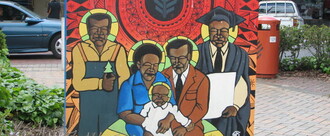
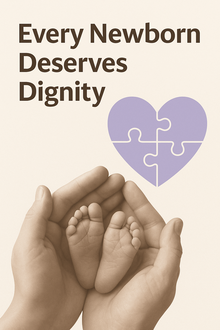



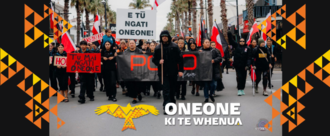.png)
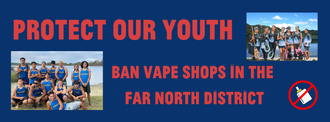.png)

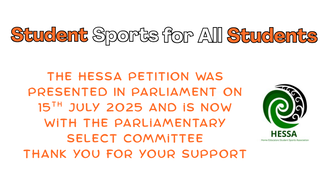%20(1024%20x%20576%20px)%20(2).png)
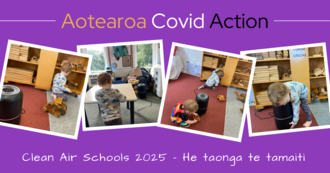.png)